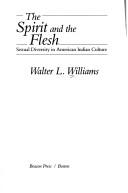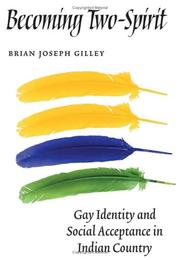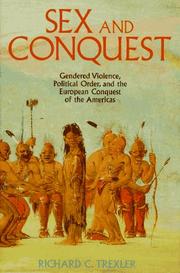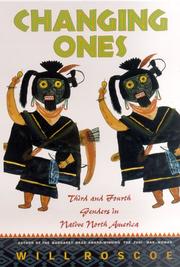| Listing 1 - 10 of 16 | << page >> |
Sort by
|
Book
ISBN: 1623178835 Year: 2024 Publisher: New York : North Atlantic Books,
Abstract | Keywords | Export | Availability | Bookmark
 Loading...
Loading...Choose an application
- Reference Manager
- EndNote
- RefWorks (Direct export to RefWorks)
Roger Kuhn's 'Somacultural Liberation' explores the integration of cultural experiences and somatic awareness to achieve personal freedom. The book delves into the intersectionality of identity, focusing on Two-Spirit and Indigenous perspectives, and examines how culture shapes bodily experiences. Through a somacultural lens, Kuhn offers insights into navigating complex systems and encourages readers to connect with their authentic selves. The work aims to foster understanding and liberation by addressing privilege, power, and emotional regulation. Intended for those interested in cultural psychiatry and somatic practices, the book highlights the value of Indigenous knowledge and Two-Spirit identity in achieving holistic well-being.
Book
ISBN: 9780816539550 0816539553 Year: 2019 Publisher: Tucson, Arizona : The University of Arizona Press,
Abstract | Keywords | Export | Availability | Bookmark
 Loading...
Loading...Choose an application
- Reference Manager
- EndNote
- RefWorks (Direct export to RefWorks)
"The image of biologically male people dancing while dressed in traditional, colorful female Zapotec, Juchiteca attire stands in sharp contrast to the prevailing view of Mexico as the land of charros, machismo, and unbridled ranchero masculinity. These indigenous people are called Los Muxes, and they are neither man nor woman, but rather a hybrid third gender. After seeing a video of a Muxe Vela, or festival, sociologist Alfredo Mirandé was intrigued by the contradiction between Mexico's patriarchal reputation and its warm acceptance of Los Muxes. Seeking to get past traditional Mexican masculinity, he presents us with Behind the Mask, which combines historical analysis, ethnographic field research, and interviews conducted with Los Muxes of Juchitán over a period of seven years. Mirandé observed community events, attended Muxe velas, and interviewed both Muxes and other Juchitán residents. Prefaced by an overview of the study methods and sample, the book challenges the ideology of a male-dominated Mexican society driven by the cult of machismo, featuring photos alongside four appendixes. Delving into many aspects of their lives and culture, the author discusses how the Muxes are perceived by others, how the Muxes perceive themselves, and the acceptance of a third gender status among various North American indigenous groups. Mirandé compares traditional Mexicano/Latino conceptions of gender and sexuality to modern or Western object choice configurations. He concludes by proposing a new hybrid model for rethinking these seemingly contradictory and conflicting gender systems." --
Zapotec Indians --- Two-spirit people --- Gender identity. --- Sex role. --- Zapotèques --- Personne bispirituelles --- Identité sexuelle. --- Rôle selon le sexe. --- Two-spirit people. --- Zapotec Indians. --- Mexico

ISBN: 0807046027 0807046116 Year: 1986 Publisher: Boston (Mass.) : Beacon press,
Abstract | Keywords | Export | Availability | Bookmark
 Loading...
Loading...Choose an application
- Reference Manager
- EndNote
- RefWorks (Direct export to RefWorks)
Indians of North America --- Male homosexuality --- Sex role --- Two-spirit people --- Sexual behavior.
Book
ISBN: 9780807003466 Year: 2022 Publisher: Boston : Beacon Press,
Abstract | Keywords | Export | Availability | Bookmark
 Loading...
Loading...Choose an application
- Reference Manager
- EndNote
- RefWorks (Direct export to RefWorks)
"A sweeping history of Indigenous traditions of gender, sexuality, and resistance that reveals how, despite centuries of colonialism, Two-Spirit people are reclaiming their place in Native nations. Reclaiming Two-Spirits decolonizes the history of gender and sexuality in Native North America. It honors the generations of Indigenous people who had the foresight to take essential aspects of their cultural life and spiritual beliefs underground in order to save them.Before 1492, hundreds of Indigenous communities across North America included people who identified as neither male nor female, but both. They went by aakíí’skassi, miati, okitcitakwe or one of hundreds of other tribally specific identities. After European colonizers invaded Indian Country, centuries of violence and systematic persecution followed, imperiling the existence of people who today call themselves Two-Spirits, an umbrella term denoting feminine and masculine qualities in one person.Drawing on written sources, archaeological evidence, art, and oral storytelling, Reclaiming Two-Spirits spans the centuries from Spanish invasion to the present, tracing massacres and inquisitions and revealing how the authors of colonialism’s written archives used language to both denigrate and erase Two-Spirit people from history. But as Gregory Smithers shows, the colonizers failed—and Indigenous resistance is core to this story. Reclaiming Two-Spirits amplifies their voices, reconnecting their history to Native nations in the 21st century."--
Two-spirit people --- Indians of North America --- Gender identity --- History. --- Social life and customs.

ISBN: 1280550864 9786610550869 080325797X 9780803257979 9781280550867 9780803271265 0803271263 Year: 2006 Publisher: Lincoln : Baltimore, Md. : University of Nebraska Press, Project MUSE,
Abstract | Keywords | Export | Availability | Bookmark
 Loading...
Loading...Choose an application
- Reference Manager
- EndNote
- RefWorks (Direct export to RefWorks)
The Two-Spirit man occupies a singular place in Native American culture, balancing the male and the female spirit. Drawing on observations from interviews, oral histories, and meetings and ceremonies, this work provides a view of how Two-Spirit men in Colorado and Oklahoma struggle to redefine themselves and their communities.
Male homosexuality --- Indian gays --- Homosexuality, Male --- Homosexuality --- Men --- Gays, Indian --- Gays --- Two-spirit people --- Sexual behavior --- Indian gay people

ISBN: 0801432243 Year: 1995 Publisher: Ithaca Cornell university press
Abstract | Keywords | Export | Availability | Bookmark
 Loading...
Loading...Choose an application
- Reference Manager
- EndNote
- RefWorks (Direct export to RefWorks)
Dominance (Psychology) --- Homosexuality --- Indians --- Sex customs --- Sex (Psychology) --- Sex role --- Two-spirit people --- History --- Sexual behavior --- Social life and customs
Book
ISBN: 1643363697 9781643363691 1643363689 9781643363684 Year: 2022 Publisher: Columbia, South Carolina
Abstract | Keywords | Export | Availability | Bookmark
 Loading...
Loading...Choose an application
- Reference Manager
- EndNote
- RefWorks (Direct export to RefWorks)
Indians of North America --- Gender identity --- Sex role --- Indian women --- Two-spirit people --- Sexual behavior. --- History. --- Social conditions.
Book
ISBN: 9780816656332 9780816656325 Year: 2011 Publisher: Minneapolis : University of Minnesota Press,
Abstract | Keywords | Export | Availability | Bookmark
 Loading...
Loading...Choose an application
- Reference Manager
- EndNote
- RefWorks (Direct export to RefWorks)
"Explaining how relational distinctions of "Native" and "settler" define the status of being "queer," Spaces between Us argues that modern queer subjects emerged among Natives and non-Natives by engaging the meaningful difference indigeneity makes within a settler society. Morgensen's analysis exposes white settler colonialism as a primary condition for the development of modern queer politics in the United States. Bringing together historical and ethnographic cases, he shows how U.S. queer projects became non-Native and normatively white by comparatively examining the historical activism and critical theory of Native queer and Two-Spirit people. Presenting a "biopolitics of settler colonialism"—in which the imagined disappearance of indigeneity and sustained subjugation of all racialized peoples ensure a progressive future for white settlers—Spaces between Us newly demonstrates the interdependence of nation, race, gender, and sexuality and offers opportunities for resistance in the United States." --
Indian gays --- Frontier and pioneer life --- Colonists --- Two-spirit people --- Radical Faeries (New Age movement) --- Decolonization --- History. --- Colonization. --- Sexual behavior. --- Indian gay people
Book
ISBN: 1839977639 Year: 2023 Publisher: London : Jessica Kingsley Publishers,
Abstract | Keywords | Export | Availability | Bookmark
 Loading...
Loading...Choose an application
- Reference Manager
- EndNote
- RefWorks (Direct export to RefWorks)
"Exploring identities that span the Indigenous Two Spirit people, the hijras of the Indian subcontinent, the māhū people of Hawaii, the female husbands of the Igbo tribe, and many more, Cassandra Jules Corrigan beautifully demonstrates that gender identities beyond the binary are a worldwide phenomenon. This lovingly illustrated guide is an important testament that genders other than male and female have always existed--around the globe--and comes with additional materials to help children uncover gender identities from their own cultures. Perfect for parents, children, educators, and professionals who work with gender-diverse children."--Back cover.
Gender-nonconforming people --- Gender nonconformity --- Gender identity --- Two-spirit people --- Indigenous peoples --- Transgenrisme --- Identité de genre --- Personnes bispirituelles --- Ibo (Peuple d'Afrique) --- Mœurs et coutumes

ISBN: 9780312224790 0312224796 0312175396 Year: 1998 Publisher: New York, NY : St. Martin's Griffin,
Abstract | Keywords | Export | Availability | Bookmark
 Loading...
Loading...Choose an application
- Reference Manager
- EndNote
- RefWorks (Direct export to RefWorks)
Gender diversity - in the form of third and fourth gender roles - is one of the most common and least understood features of native North America. Such roles have been documented in over 150 tribes throughout the continent. Widely accepted, often considered holy, berdaches, as they have been termed, combine the work and social roles of men and women along with traits unique to their status. In Changing Ones, Will Roscoe carefully reconstructs the place of these roles in traditional tribal cultures and traces their history up to the present. The result is a strikingly different view of native North America. Before the arrival of Europeans, marriages between berdaches and non-berdache members of the same sex were commonplace, and individuals sometimes changed their gender because of a dream. Drawing on a series of case studies, Changing Ones goes on to explore the theoretical implications of multiple genders for the fields of anthropology, history, and gender studies, and concludes by offering some intriguing suggestions regarding the social origin of gender diversity and its role in human history in North America and elsewhere.
Indian gays --- Indians of North America --- Two-spirit people --- Homosexuality --- Lesbianism --- Homosexuels indiens d'Amérique --- Indiens d'Amérique --- Berdaches --- Homosexualité --- Lesbianisme --- Sexual behavior --- Sexualité --- Indian gay people
| Listing 1 - 10 of 16 | << page >> |
Sort by
|

 Search
Search Feedback
Feedback About UniCat
About UniCat  Help
Help News
News